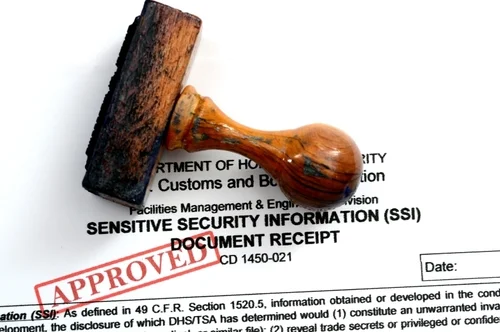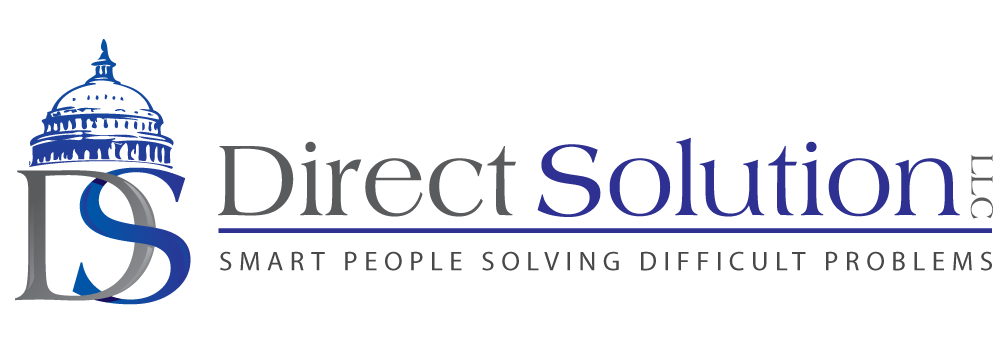






Governance
Governance
CODE OF CONDUCT
Direct Solution, LLC, is committed to following all applicable laws and industry standards and requires its employees, agents, service providers, suppliers, and their subcontractors to do the same.
This Supplier Code of Conduct is based upon Direct Solution’s expectation that its Suppliers, and their subcontractors, comply with all applicable laws and regulations, maintain just and decent working conditions, share Direct Solution’s respect for the environment, and implement sound security measures.
Suppliers shall permit Direct Solution and its agents (including third parties) to engage in assessment activities to confirm compliance with these standards, including unannounced inspections of Suppliers’ facilities, reviews of books and records, and private interviews with employees. Accordingly, Suppliers should evaluate their facilities, books and records and those operated and maintained by their suppliers and service providers.
If Direct Solution determines through a factory audit or otherwise that a Supplier is not meeting the requirements and expectations set forth in these Standards, Direct Solution shall offer guidance with respect to matters requiring correction or that need improvement. Direct Solution reserves the right, however, to cancel outstanding orders, suspend future orders or terminate its relationship with the Supplier.

Values
Values
CORE VALUES
Direct Solution's employees, suppliers and their agents will uphold the following Core Values:
Business Integrity- The highest standards of integrity are to be upheld in all business interactions. Participants shall have a zero tolerance policy to prohibit any and all forms of bribery, corruption, extortion and embezzlement (covering promising, offering, giving or accepting any bribes). All business dealings should be transparently performed and accurately reflected on Participant’s business books and records. Monitoring and enforcement procedures shall be implemented to ensure compliance with anti-corruption laws.
No Improper Advantage- Bribes or other means of obtaining undue or improper advantage are not to be offered or accepted.
Disclosure of Information- Information regarding business activities, structure, financial situation and performance is to be disclosed in accordance with applicable regulations and prevailing industry practices. Falsification of records or misrepresentation of conditions or practices in the supply chain is unacceptable.
Intellectual Property- Intellectual property rights are to be respected; transfer of technology and know-how is to be done in a manner that protects intellectual property rights.
Fair Business, Advertising and Competition- Standards of fair business, advertising and competition are to be upheld. Appropriate means to safeguard customer information must be available.
Protection of Identity- Programs that ensure the confidentiality and protection of supplier and employee whistleblowers are to be maintained.
Responsible Sourcing of Minerals- Participants shall have a policy to reasonably assure that the tantalum, tin, tungsten and gold in the products they manufacture do not directly or indirectly finance or benefit armed groups that are perpetrators of serious human rights abuses in the Democratic Republic of the Congo or an adjoining country. Participants shall exercise due diligence on the source and chain of custody of these minerals and make their due diligence measures available to customers upon customer request.
Privacy- Participants are to commit to protecting the reasonable privacy expectations of personal information of everyone they do business with, including suppliers, customers, consumers and employees. Participants are to comply with privacy and information security laws and regulatory requirements when personal information is collected, stored, processed, transmitted, and shared.
Non-Retaliation- Participants should have a communicated process for their personnel to be able to raise any concerns without fear of retaliation.

Standards
Standards
LABOR & PRODUCT STANDARDS
Suppliers are expected to maintain fundamental labor and human rights standards as described below. These standards embody those embraced by the Fair Labor Association Workplace Code of Conduct.
Labor Laws
No Forced Labor:
Forced, bonded (including debt bondage) or indentured labor, involuntary prison labor, slavery or trafficking of persons shall not to be used. This includes transporting, harboring, recruiting, transferring or receiving vulnerable persons by means of threat, force, coercion, abduction or fraud for the purpose of exploitation. All work must be voluntary and workers shall be free to leave work at any time or terminate their employment. Workers must not be required to surrender any government-issued identification, passports, or work permits as a condition of employment. Excessive fees are unacceptable and all fees charged to workers must be disclosed.
No Child Labor:
Child labor is not to be used in any stage of manufacturing. The term “child” refers to any person under the age of 15 (or 14 where the law of the country permits), or under the age for completing compulsory education, or under the minimum age for employment in the country, whichever is greatest. The use of legitimate workplace apprenticeship programs, which comply with all laws and regulations, is supported. Workers under the age of 18 shall not perform work that is likely to jeopardize the health or safety of young workers.
No Harassment or Abuse:
Suppliers shall treat each employee with respect and dignity and shall not subject any employee to any harsh and inhumane treatment including any physical, sexual, psychological, verbal, corporal punishment or any other form of harassment or abuse nor is there to be the threat of any such treatment. Disciplinary policies and procedures in support of these requirements shall be clearly defined and communicated to workers
Hours of Work:
Except in extraordinary business circumstances, employees shall: (i) not be required to work more than the lesser of (a) forty-eight (48) hours per week and twelve (12) hours overtime, or (b) the limits on regular and overtime hours allowed by the law of the country of manufacture, or, where the laws of such country do not limit the hours of work, the regular work week in such country plus twelve (12) hours overtime; and (ii) be entitled to at least one (1) day off in every seven (7) day period.
Nondiscrimination:
No person shall be subject to any unlawful discrimination in employment, including hiring, salary, benefits, advancement, discipline, termination, or retirement, on the basis of gender, race, religion, age, disability, sexual orientation, nationality, political opinion, social or ethnic origin, or any other applicable prohibited basis. In addition, workers or potential workers should not be subjected to medical tests that could be used in a discriminatory way.
Freedom of Association and Collective Bargaining:
Open communication and direct engagement between workers and management are the most effective ways to resolve workplace and compensation issues. The rights of workers to associate freely, join or not join labor unions, seek representation, and join workers’ councils in accordance with local laws shall be respected. Workers shall be able to openly communicate and share grievances with management regarding working conditions and management practices without fear of reprisal, intimidation or harassment.
Wages and Benefits:
Suppliers recognize that wages are essential to meeting employees’ basic needs. Suppliers shall pay employees, as a floor, at least the minimum wage required by local law or the prevailing industry wage, whichever is higher, and shall provide legally mandated benefits.
Overtime Compensation:
In addition to their compensation for regular hours of work, employees shall be compensated for overtime hours at such premium rate as is legally required in the country of manufacture or, in those countries where such laws do not exist, at a rate at least equal to their regular hourly compensation rate.
Health and Safety
Suppliers shall provide a safe and healthy working environment to prevent accidents and injury to health arising out of, linked with, or occurring in the course of work or as a result of the operation of Suppliers’ facilities.
Concern for the Environment:
Direct Solution expects its Suppliers to conduct business in a way that demonstrates respect for the environment. Suppliers should be alert to environmental issues and share in the commitment to conserve natural resources. Suppliers are encouraged to reduce excess packaging and to use recycled and non-toxic materials whenever possible. Suppliers should take steps to minimize the negative impact their business might have on the environment particularly concerning material selection and the handling and disposal of hazardous material and other waste. Suppliers shall in all respects comply with local environmental laws and regulations. Suppliers are encouraged to develop and maintain an environmental management system based upon the ISO 14000 series standards.
Environmental Permits and Reporting- All required environmental permits (e.g. discharge monitoring), approvals and registrations are to be obtained, maintained and kept current and their operational and reporting requirements are to be followed.
Pollution Prevention and Resource Reduction- Waste of all types, including water and energy, are to be reduced or eliminated at the source or by practices such as modifying production, maintenance and facility processes, materials substitution, conservation, recycling and re-using materials.
Hazardous Substances- Chemicals and other materials posing a hazard if released to the environment are to be identified and managed to ensure their safe handling, movement, storage, use, recycling or reuse and disposal.
Wastewater and Solid Waste- Wastewater and solid waste generated from operations, industrial processes and sanitation facilities are to be characterized, monitored, controlled and treated as required prior to discharge or disposal.
Air Emissions- Air emissions of volatile organic chemicals, aerosols, corrosives, particulates, ozone depleting chemicals and combustion by-products generated from operations are to be characterized, monitored, controlled and treated as required prior to discharge.
Product Content Restrictions- Participants are to adhere to all applicable laws, regulations and customer requirements regarding prohibition or restriction of specific substances, including labeling for recycling and disposal.

Security
Security
SECURITY REQUIREMENTS
Suppliers should develop and implement a comprehensive plan to enhance security procedures throughout their operations. These are general recommendations that should be followed on a case-by-case basis depending on the Supplier’s size and structure and may not be applicable to all. The Supplier should have written security procedures in place that addresses the following:
PHYSICAL SECURITY
All buildings should be constructed of materials, which resist unlawful entry and protect against outside intrusion. Physical security should include:
Adequate locking devices for external and internal doors, windows, gates and fences.
Segregation and marking of international, domestic, high-value and dangerous goods cargo. It should be stored within a safe, caged or otherwise fenced-in secured area.
Adequate lighting inside and outside the facility to include parking areas.
Separate parking areas for private vehicles separate from the shipping/loading dock and cargo areas.
Internal/external communications systems to contact internal security personnel or local law enforcement.
ACCESS CONTROL
Unauthorized access to the shipping, loading dock and cargo areas should be prohibited.
The positive identification, recording and tracking of all employees, visitors and vendors.
Procedures for challenging unauthorized/unidentified persons.
Procedures for affixing, replacing, recording, tracking and verifying seals on containers, trailers and railcars.
Procedures to notify Customs and Border Protection in cases where illegal activities are detected or suspected.
PERSONNEL SECURITY
Suppliers should conduct employment screening and interviewing of prospective employees to include periodic background checks and application verifications in accordance with applicable statutes and regulations.

Compliance
Compliance
COMPLIANCE WITH ALL APPLICABLE LAWS
Suppliers shall comply with all applicable laws and regulations of the jurisdictions in which the Suppliers are doing business, including but not limited to labor and employment laws of those jurisdictions and any applicable United States laws. In particular, Supplier shall adhere to the laws and regulations of the countries of manufacture and distribution pertaining to product design, manufacture, packaging, labeling, and importation. Commercial invoices and other necessary documentation shall be provided in compliance with applicable laws. All products, unless specifically exempted under the applicable customs laws and regulations, shall be marked with the country of origin. Suppliers shall conduct business in compliance with any applicable anti-terrorism and anti-corruption laws such as the United States Foreign Corrupt Practices Act and UK Bribery Act of 2010.
In addition The 2010 California Transparency in Supply Chains Act requires Direct Solution to evaluate its Suppliers to insure that the supply chains are free from human trafficking and slavery.
When acting as a U.S. Government contractor or subcontractor, Direct Solution is governed by and complies with Federal Acquisition Regulation (FAR) 52.222-50, “Combating Trafficking in Persons.” FAR 52.222-50 imposes the U.S. Government’s “zero tolerance policy on human trafficking” on its contractors and their subcontractors. The regulation prohibits U.S. Government contractors and subcontractors from utilizing “forced labor” or engaging in “severe forms of trafficking in persons” during the performance of the contract or subcontract. Violations of this regulation can result in substantial monetary and non-monetary penalties. In accordance with the terms and conditions in applicable Government contracts, Direct Solution complies with these requirements regarding trafficking in persons and forced labor. Direct Solution also flows down to its suppliers these requirements.
Effective January 1, 2013 Direct Solution requires that its supply chain comply with the Conflict Minerals Act. We require Supplier’s to certify as to whether the products that they supply to Direct Solution are free of Conflict Minerals.
Direct Solution’s direct suppliers are required both to comply with applicable laws and regulations and also adhere to Direct Solution’s values and standards of business conduct. Direct Solution considers this not only a legal issue but an ethical obligation for everyone associated with Direct Solution. Direct Solution uses a standard questionnaire that requires each supplier to self-certify that it does not engage in illegal activities in the country or countries where the supplier does business, including but not limited to compliance with human trafficking and slavery laws and the Conflict Minerals Act. Direct Solution is working with all of its suppliers to ensure they use this questionnaire.

Verify
Verify
Direct Solution conducts supplier audits on an as-needed basis based on the level of business or strategic relationship with the supplier. Direct Solution has taken appropriate actions to ensure that its' employees and management are trained and aware of issues related to human trafficking and slavery, conflict minerals, and security and ensure they are followed within our supply chain. In keeping with our commitment to ethics, integrity and corporate governance, Direct Solution also maintains a robust, broad-based ethics and compliance program. This program addresses values, leadership, training, audits, certifications, and accountability. This program is intended to ensure compliance with applicable laws and a culture committed to ethics and integrity in all we do.
Audits are generally focused on quality management systems and have not historically included human trafficking and slavery components. Direct Solution, however, maintains the right to audit suppliers regarding human trafficking and slavery. Furthermore, in-house verifications in the form of business reviews are conducted on a periodic basis to review performance against our business requirements, including the supplier code of conduct.


